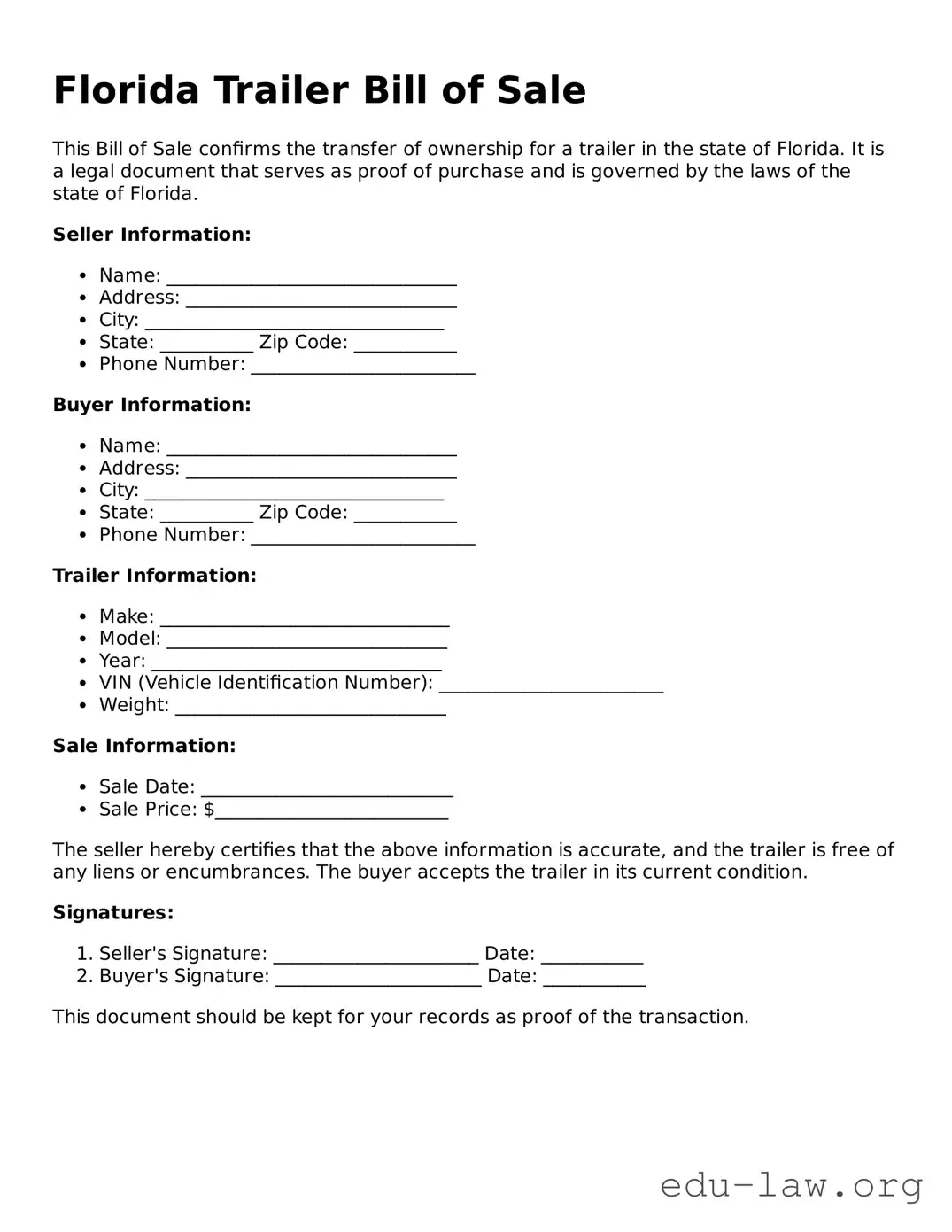What is a Florida Trailer Bill of Sale?
A Florida Trailer Bill of Sale is a legal document that serves as proof of the sale and transfer of ownership of a trailer in the state of Florida. This document records details about the transaction, including information about the seller, buyer, and trailer specifics such as make, model, and identification number. It is an important document for both parties to retain for legal and tax purposes.
Why is a Trailer Bill of Sale necessary?
This document is necessary for several reasons. It provides evidence that a sale has taken place, protecting both the buyer and seller. For buyers, it establishes ownership and contains crucial details for registering the trailer with the state. For sellers, it can serve as proof of the transaction for tax reporting and liability purposes.
What information is required on a Trailer Bill of Sale?
The form typically requires the following information: names and addresses of both the buyer and seller, the date of the transaction, a description of the trailer (including make, model, year, and Vehicle Identification Number - VIN), and the sale price. Both parties should also sign the document to validate the transaction.
Can a Trailer Bill of Sale be used for any type of trailer?
Yes, a Trailer Bill of Sale can be used for various types of trailers, including utility trailers, boat trailers, and camper trailers. However, the details provided may vary based on the type of trailer being sold. Always check state-specific regulations to ensure compliance with local laws.
Is a Trailer Bill of Sale required in Florida?
While a Trailer Bill of Sale is not legally required in Florida, it is highly recommended. The document provides valuable evidence of the transaction and can help resolve disputes or clarify ownership in the future. Additionally, certain local DMV offices may request a Bill of Sale during the registration process.
How should a Trailer Bill of Sale be completed?
To complete a Trailer Bill of Sale, both parties should fill in the required information accurately. It is important to double-check the trailer’s details, including its VIN. After completion, both the seller and buyer should sign and date the document. Each party should retain a copy for their records.
Where can I obtain a Trailer Bill of Sale form?
Trailer Bill of Sale forms can be obtained from various sources. Many legal document websites offer customizable templates. Additionally, state DMV offices or local government websites may provide a standardized form. It is important to ensure the form complies with Florida state requirements before use.
What should I do if the trailer has liens or other encumbrances?
If the trailer has liens or other encumbrances, these should be disclosed to the buyer before completing the sale. It is advisable for the buyer to perform a lien search to confirm the ownership status. The Bill of Sale can include a section that acknowledges any existing liens and establishes the agreed handling of these encumbrances.
